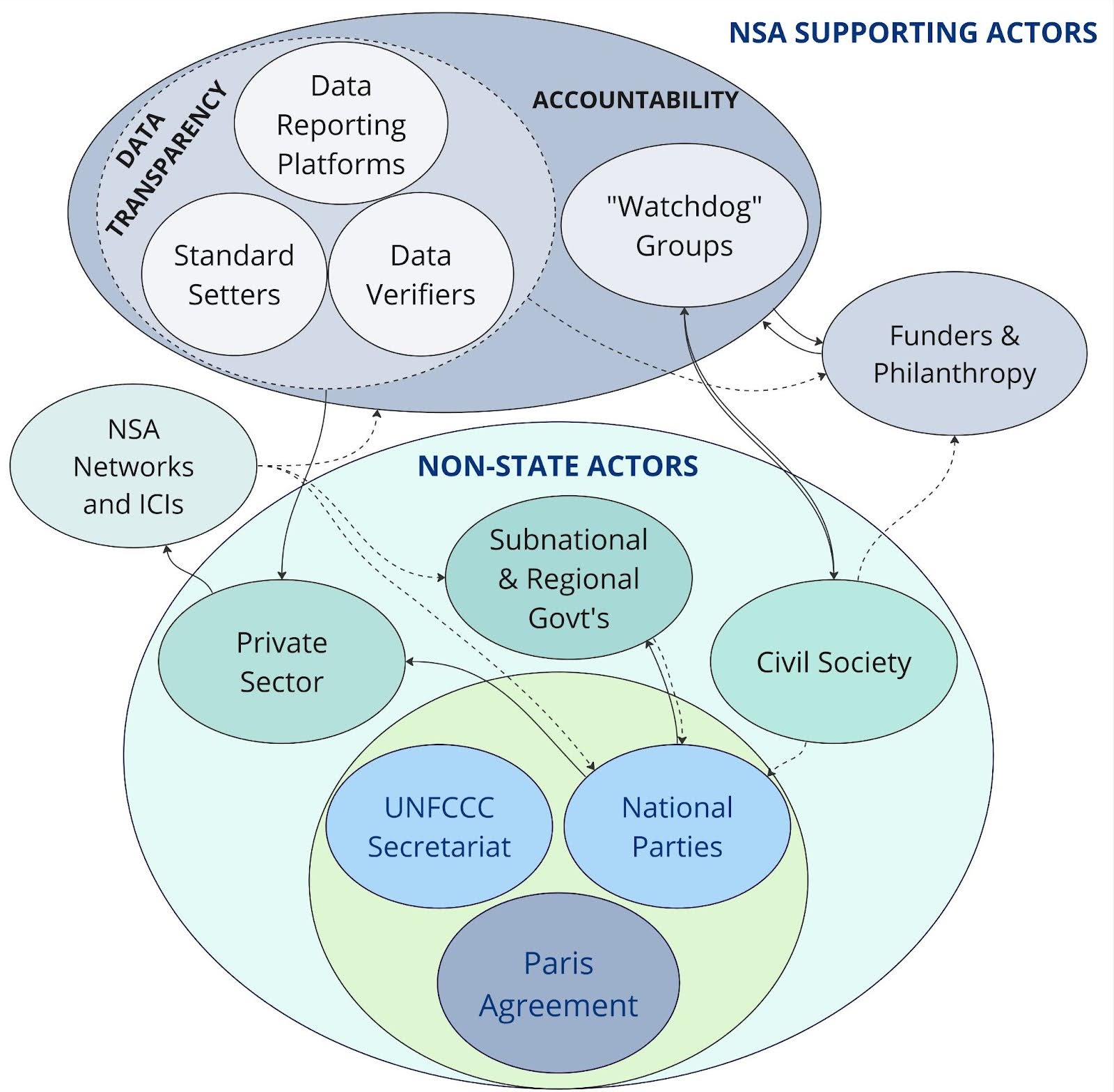
Ahead of COP28 and review of the first Global Stocktake, DDL researchers wrote a report detailing key accounting and accountability challenges related to non-state actor (NSA) climate actions and a future path forward enabled by digital advances. After interviewing 20+ expert regulators, cooperative climate initiatives, data reporting platforms, standard setters, and stakeholders, we have developed this report with two main goals: to identify current deficiencies in non-state actor climate accounting practices and to propose suggestions for designing a climate accountability system enhanced by digital capabilities.
Why does Non-State Actor Accountability Matter for the Paris Agreement
The 2015 Paris Agreement established our global climate goal to limit global warming to 1.5 degrees Celsius above pre-industrial levels to avoid the most dire impacts of climate change. The Agreement also requires member states to track global progress toward these goals and provide financing to developing countries to strengthen resilience and mitigate and adapt to climate change.
Cities, states, regions and companies play a substantial role in limiting global warming to 1.5 degrees. As such, many have made voluntary commitments to reduce emissions and achieve net zero. To ensure the credibility of Non-State Actors’ (NSAs) voluntary climate commitments, the UNFCCC developed the Non-Party Recognition and Accountability Framework.
The UNFCCC framework is a much-needed starting point to hold NSAs accountable; however, as a foundation in a complex climate data ecosystem (see fig. 1), there is always room for improvement. We outline our suggestions for improving the state of NSA data accountability in the report’s findings.

Figure 1. The climate actor and institutional landscape as of November 2023. The arrows between ecosystem groups signal direct interaction (full lines) and second-order interactions (dotted lines). Source: authors.
Deficiencies in Data Accountability, Governance, and Cohesion
The ecosystem of organizations addressed in the Recognition and Accountability Framework is complex. The existing multilateral infrastructure that engages NSAs and governs compliance has data fragmentation and inconsistency gaps, perpetuating spatial and temporal capacity constraints. As the number of stakeholders, available technologies, and software systems continues to grow and convolute this space, it is necessary to organize NSA reporting schemes using coordinated and interoperable actions among standard setters, data managers, and third-party verifiers. Data interoperability1standardized data formatting to enable coordinated exchange of information, facilitating seamless data exchange practices should be designed to align operations among all relevant actors while maintaining cohesion and consistency in data handling methodologies.
Design Suggestions for a Digitally-Enabled Data Accountability System
Designing digital architecture2in this context, a clear data accountability model, including software platforms, data governance policies, disclosure standards, and sourcing capabilities with openness, traceability, and machine readability promotes inclusivity and interoperability in decentralized governance systems. Balancing public access and privacy requires identifying key interoperability points through metadata standards and open data models. To ensure consistency, cross-functional collaborations should be emphasized, and soft infrastructure should shift from voluntary to regulated reporting for accountable engagement. Leveraging data-driven solutions and AI innovations facilitates the integration and growth of systems to keep pace with evolving data sources.
Read the full report here.

Recent Comments